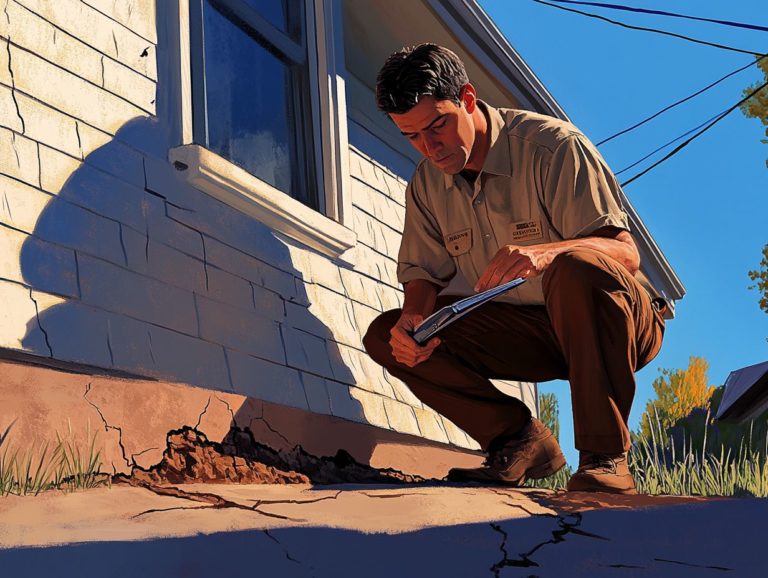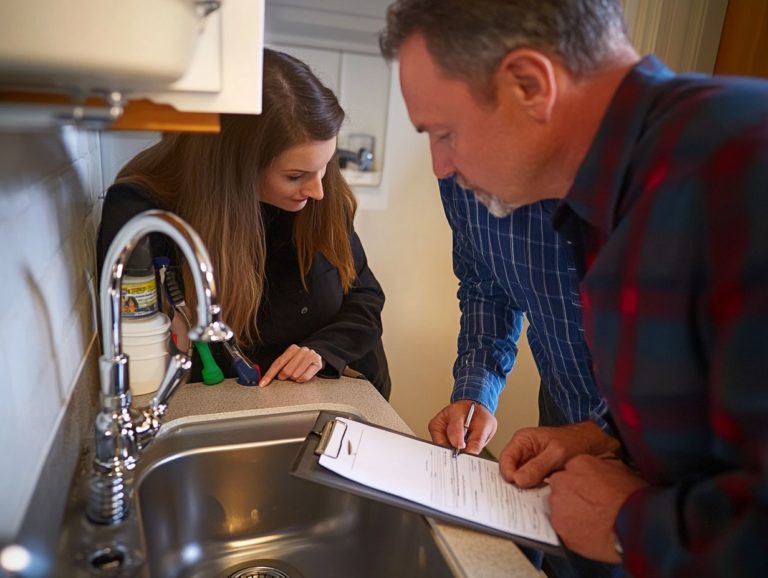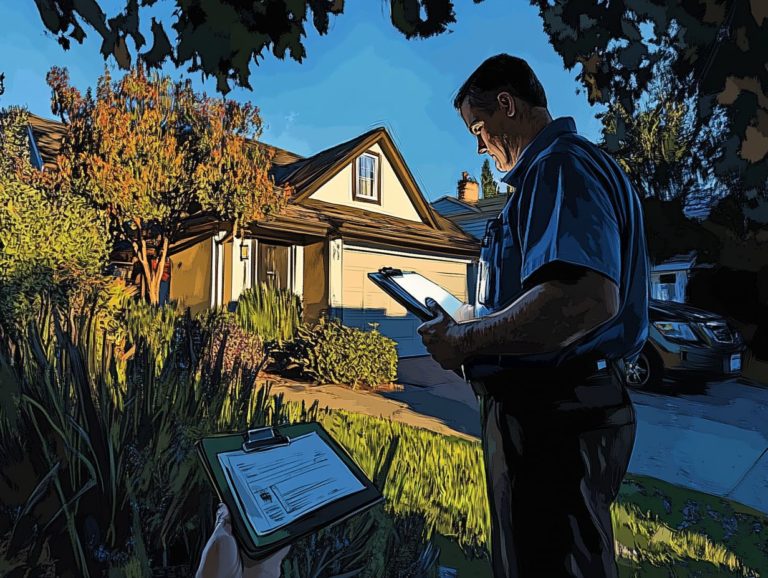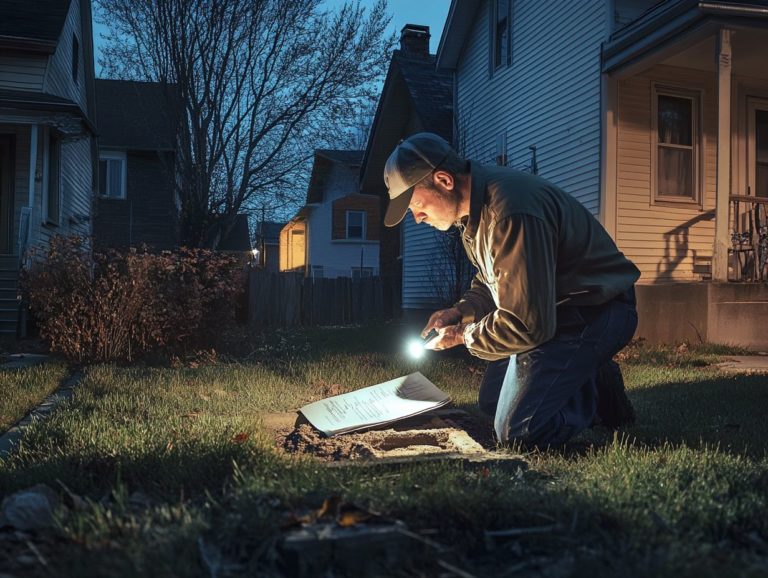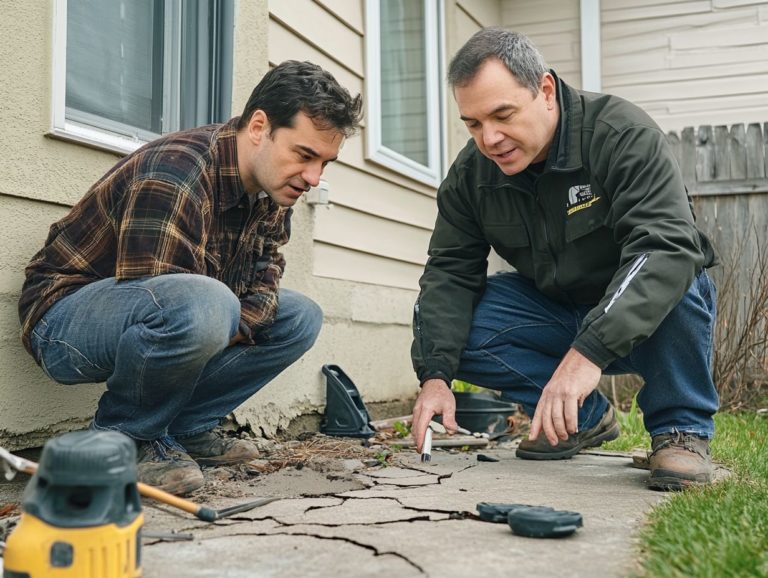The Role of Home Inspections in Real Estate
Buying or selling a home is thrilling, but it s also daunting. Home inspections can ensure you re making a wise investment.
This article delves into the importance of home inspections, guiding you through the entire inspection process. It highlights common issues that may arise and illustrates how inspections can influence real estate transactions.
You’ll find valuable tips on selecting a qualified home inspector and preparing your property for a comprehensive evaluation.
Whether you re a buyer or seller, grasping these elements can pave the way for a smoother transaction and provide you with the peace of mind you deserve.
Contents
- Key Takeaways:
- The Importance of Home Inspections
- The Home Inspection Process
- Common Issues Found During Home Inspections
- The Role of Home Inspections in Real Estate Transactions
- Choosing a Qualified Home Inspector
- What to Look for in a Home Inspector
- Tips for Preparing for a Home Inspection
- How to Get Your Home Ready for Inspection
Key Takeaways:
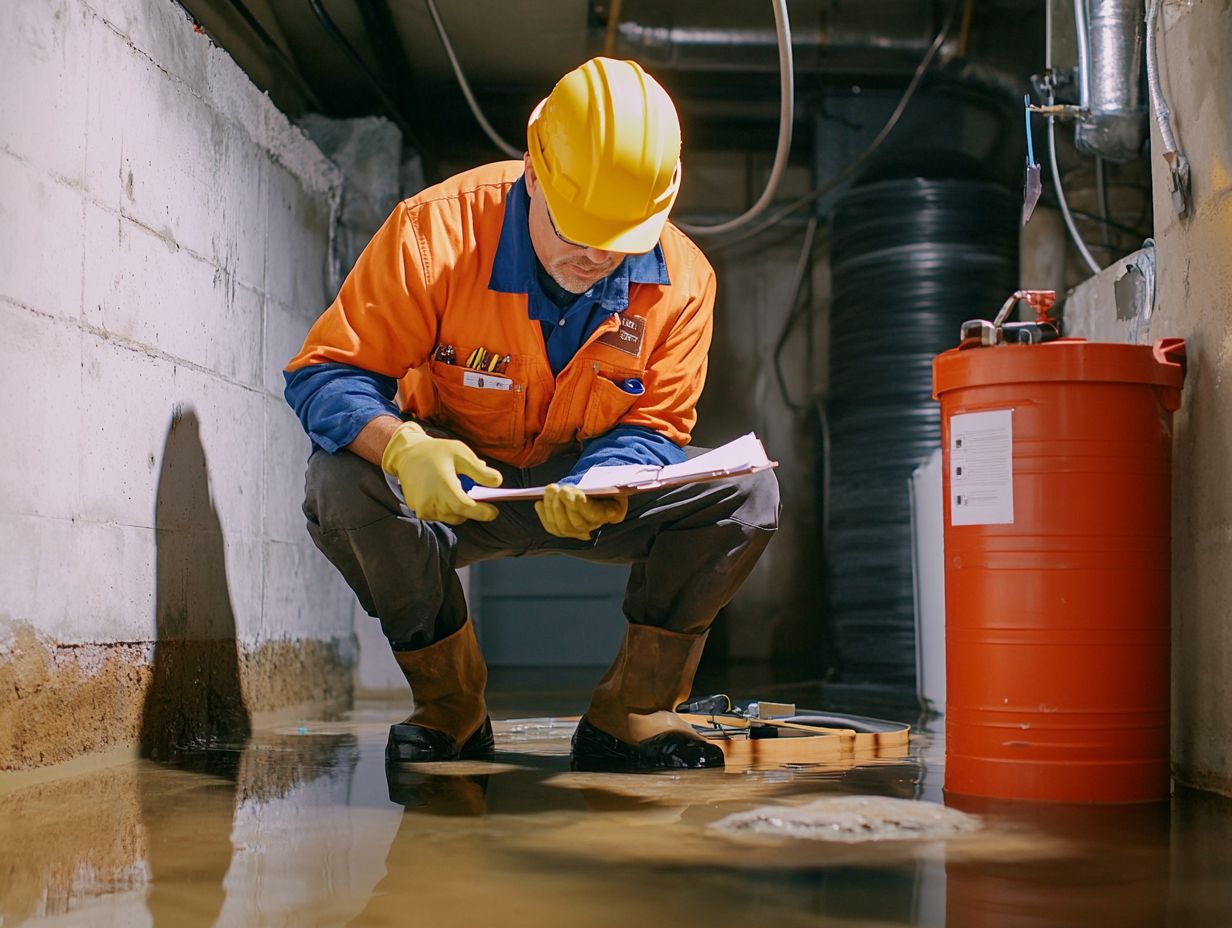
Home inspections are vital in real estate transactions as they uncover potential issues with a property that may affect its value or safety. Understanding the role of home inspectors helps both buyers and sellers understand the condition of a property and make informed decisions.
Choosing a qualified home inspector and preparing your home for inspection greatly impacts the success of the process, especially when you understand the role of agents in home inspections.
The Importance of Home Inspections
Home inspections are essential in the real estate transaction process, acting as a safeguard for you as a home buyer. They also highlight the role of home inspections in the home buying process, promoting transparency and fairness in negotiations with sellers.
A thorough inspection carried out by a qualified professional can uncover significant issues as well as minor concerns that may impact the condition and market value of the home. This insight informs your decision-making and allows you to tackle any inspection contingencies with confidence.
By taking this proactive approach, you can avoid buyer’s remorse and equip yourself with the knowledge needed to make sound decisions regarding your investment.
Why Home Inspections are Necessary
Home inspections are essential for pinpointing safety issues and significant defects in a property. They help ensure that both buyers and sellers clearly understand the home’s condition, highlighting the importance of home inspections.
These thorough checks are a crucial step in your real estate journey. They allow you to uncover hidden issues that could pose future risks.
For potential buyers, knowing the true state of a property saves you from costly surprises and grants you much-needed peace of mind.
On the flip side, sellers have the opportunity to address any problems before listing, which can ultimately boost the home’s market value.
In the end, thorough inspections pave the way for a smoother transaction process, highlighting the role of a real estate agent in home buying to foster trust and transparency among all parties involved.
The Home Inspection Process
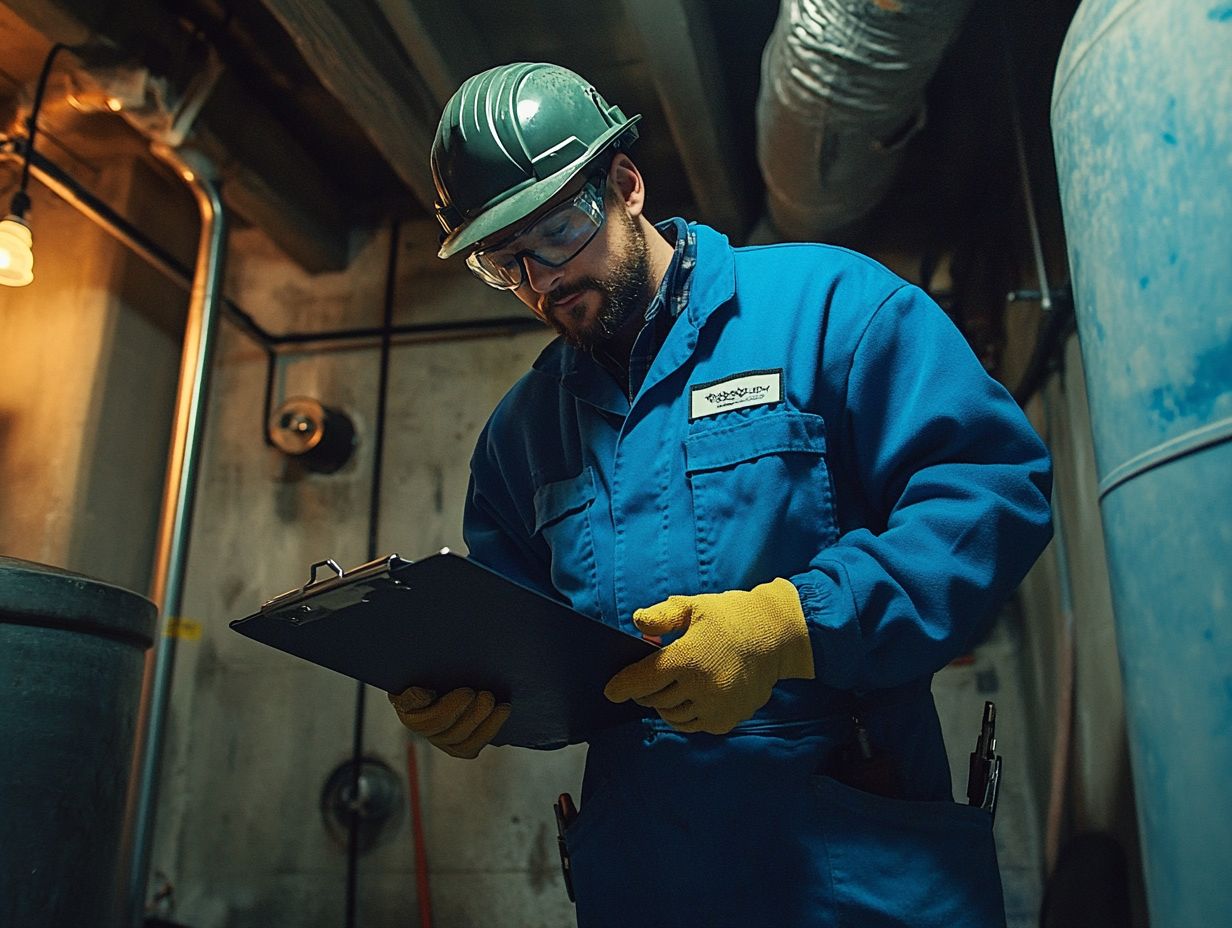
Understanding the home inspection process is essential for both home buyers and sellers. It encompasses a systematic evaluation aimed at identifying issues that can range from minor repairs to significant safety concerns.
A comprehensive home inspection checklist serves as a valuable tool for professional inspectors as they meticulously examine various components, such as:
- Electrical systems
- Plumbing
- HVAC systems
- Structural elements
This process yields an inspection report detailing the findings. It also equips all parties with the necessary insights for budgeting any required repairs and clarifying their inspection obligations related to the transaction.
What to Expect During an Inspection
During a home inspection, you can expect a comprehensive examination of the property. A professional home inspector meticulously assesses both visible and concealed aspects that could impact the home s safety and value.
The process begins with a visual assessment of the exterior, where the inspector evaluates the roof, siding, and foundation for any signs of wear or damage. As they transition indoors, they inspect critical systems like heating, cooling, and plumbing, often employing specialized tools to uncover hidden issues.
Crawlspaces and attics aren t spared; inspectors will bend and crawl into those tight spots to reveal potential concerns such as moisture intrusion or pest infestations.
Throughout the inspection, findings are documented with precision, providing you with a clear understanding of the property’s condition. Most inspections last between two to four hours, depending on the complexity of the home, ensuring nothing is overlooked.
Ready to secure your peace of mind? Don t wait schedule your home inspection today!
Common Issues Found During Home Inspections
Home inspections frequently uncover common issues that can significantly affect the integrity and safety of your home.
Common problems include plumbing issues, electrical malfunctions, and HVAC inefficiencies. These emphasize the importance of staying vigilant as a buyer.
Pests like termites can cause serious damage to structural components. Additionally, foundation issues or other defects could threaten the overall stability of the property.
By understanding these common pitfalls, you can effectively prioritize repairs and negotiate with confidence.
Structural, Electrical, and Plumbing Concerns
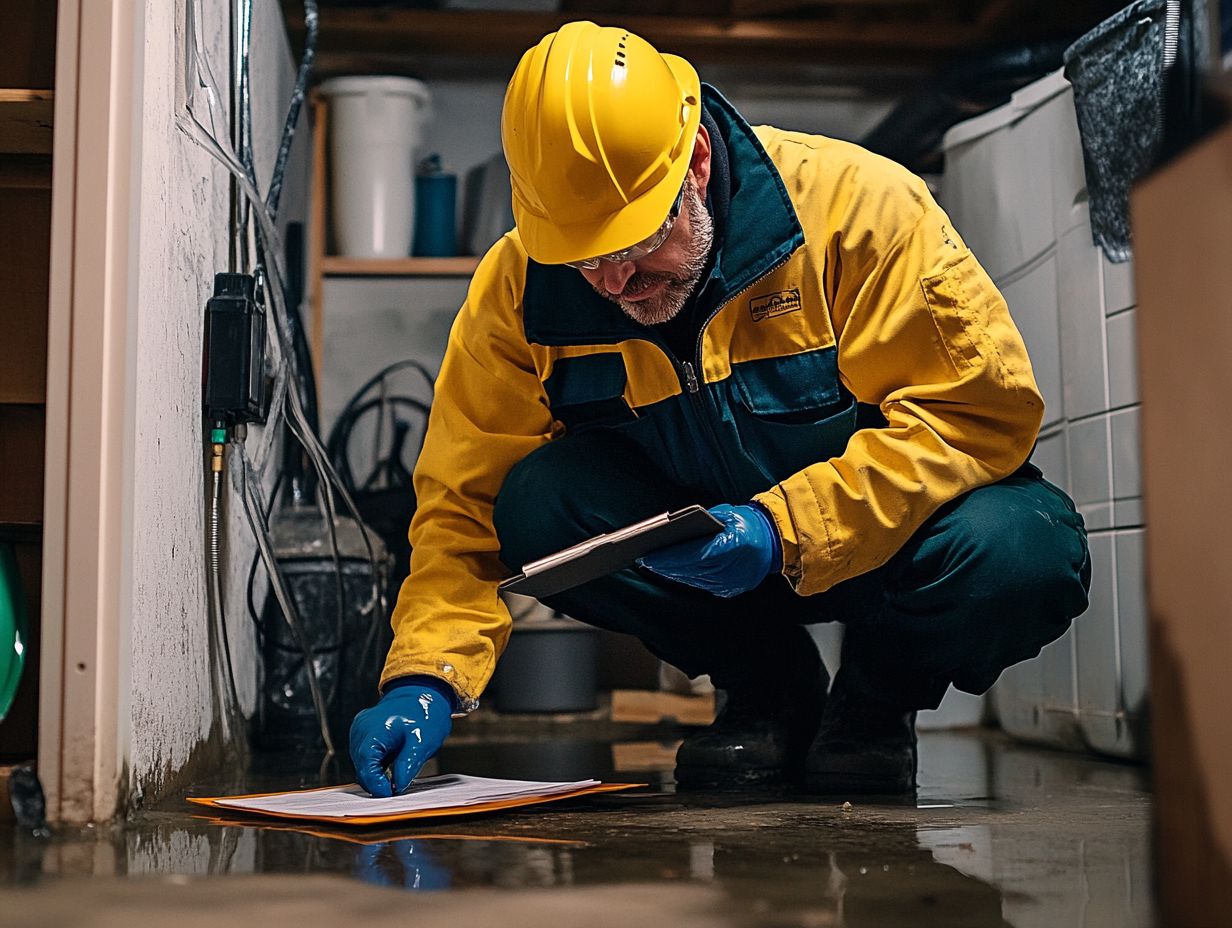
In the world of home inspections, you ll find that structural, electrical, and plumbing issues are among the most crucial factors influencing a property s safety and overall value.
These issues can reveal dangerous problems that you must address. For example, cracks in foundational walls might indicate serious structural deficiencies, while outdated electrical wiring could pose fire hazards and safety risks.
Plumbing leaks can lead to health concerns stemming from mold growth and water damage. This can potentially result in costly repairs down the line.
As a buyer, you must be vigilant, as these defects represent more than just minor inconveniences; they can substantially diminish the property’s market value and complicate any future resale.
The Role of Home Inspections in Real Estate Transactions
Home inspections are essential in real estate transactions, acting as a vital tool for both buyers and sellers during negotiations. By delivering an accurate appraisal of the property’s condition, these inspections establish a fair market value and highlight the value of home inspections for real estate agents, bringing to light any potential issues that could impact the sale.
This level of transparency is invaluable, as it allows for the inclusion of inspection clauses, enabling you to negotiate necessary repairs or financial concessions. In turn, this significantly reduces the likelihood of experiencing buyer’s remorse after the deal is done.
How Inspections Affect the Buying and Selling Process
Inspections play a crucial role in the real estate landscape, profoundly influencing both the buying and selling processes. Understanding the role of home inspections in real estate can significantly shape the trajectory of negotiations and the overall transaction experience.
When inspection findings uncover significant issues, you may feel compelled to request necessary repairs or price adjustments. This often places sellers in the position of reassessing their initial asking prices.
The dynamic established by these findings can spark strategic conversations, where you articulate concerns about safety and long-term value, while sellers weigh the costs of repairs against possible concessions.
This back-and-forth not only affects financial considerations but also impacts timelines; prolonged discussions over repairs and adjustments can inevitably delay closing dates.
Ultimately, the ramifications of these inspections can lead to more informed and equitable outcomes for everyone involved in the transaction.
Choosing a Qualified Home Inspector
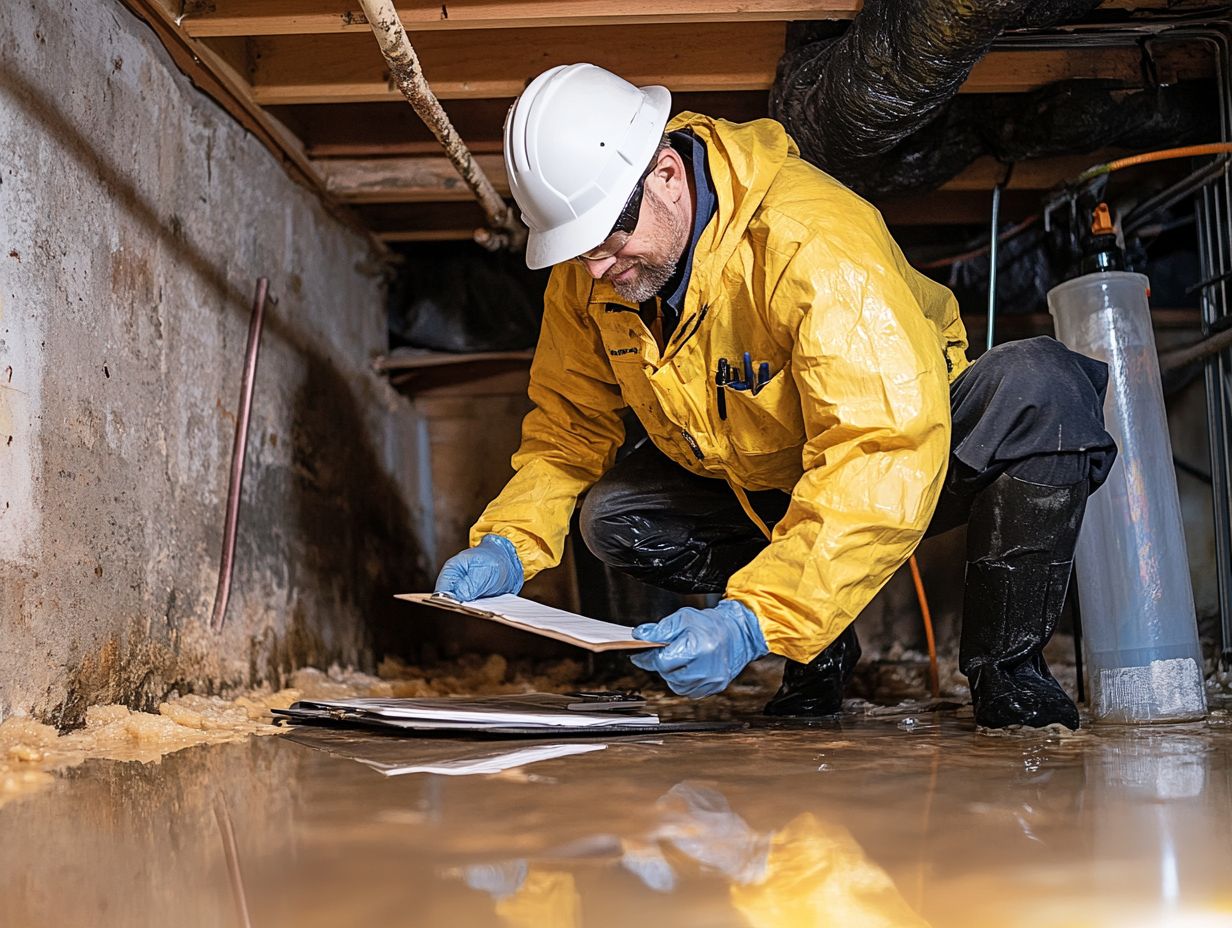
Selecting a qualified home inspector is a pivotal step in your home-buying journey. Ensuring that the inspection is both thorough and trustworthy is essential.
You want a professional who arrives armed with proper training and a deep understanding of inspection obligations and property disclosures.
The inspector’s experience and reputation can significantly impact the quality of the inspection report. This serves as a vital foundation for your knowledge-based decision making in real estate transactions.
Don t wait! Schedule an inspection today to protect your investment.
What to Look for in a Home Inspector
When choosing a home inspector, consider their training and experience. Look for relevant certifications that prove their ability to evaluate a property.
Seek an inspector with experience in the type of property you want, whether it s a single-family home, a condo, or a charming historic dwelling.
Strong communication skills are vital. A good home inspector will explain their findings clearly, helping you make informed decisions.
Prioritize these qualities to build your confidence in understanding the property’s true value and condition.
Tips for Preparing for a Home Inspection
Preparing for a home inspection is important for both buyers and sellers, as understanding the home inspector’s role sets the stage for a successful evaluation of the property.
Follow a simple inspection checklist to find areas needing attention. Addressing potential safety concerns ahead of time simplifies the inspection.
How to Get Your Home Ready for Inspection
To ensure a smooth home inspection, focus on maintenance and repairs that improve your property s condition. Start by listing any existing maintenance issues, like leaky faucets or chipped paint.
Gather key documents like previous inspection reports, repair invoices, and warranties. These will show potential buyers how well you ve maintained your home.
Make sure all areas, including attics and basements, are accessible for a thorough assessment. This is critical for a complete evaluation.
By addressing these aspects, you can present a well-kept home that aligns with the inspection checklist, boosting buyer confidence and streamlining negotiations.


